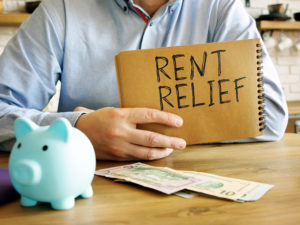Will Taxing the Wealthy Really Fix Income Inequality?

If you pay attention to any political programs or follow any news about the economy and taxes, then you no doubt have heard plenty of debate regarding income inequality. The fact is there is a lot of income inequality in the country. Whether you side with the haves or the have-nots, the fact remains that those on each side of the argument feel they have the right answers.
According to democratic philosophy, the argument goes that if you want to fix income inequality then you have to raise taxes on the wealthy and give more of that money to the poor or middle-class. It might sound like a good plan on the surface, however, a new report shows that in reality, if you really want to close the income gap between the wealthy and lower income classes, then policy changes are much more effective.
That’s right. According to a study just recently released by the Competitive Enterprise Institute, the difference between the economic brackets among the top and bottom levels is not as important as the living standard of those in the lowest economic levels. The study also noted that raising the minimum wage would end up having a negative effect because it would help drive the unemployment rate even higher.
According to one of the study’s co-authors, Ryan Young, giving people access to economic and job opportunities that will boost their standard of living is more important than focusing on the income gap. Young also said: ““Policy reforms that help poor people include access to affordable energy, access to capital for entrepreneurs, ending occupational licensing restrictions, an honest price system, and overhauling a range of regulatory barriers.”
http://dailycaller.com/2016/05/25/report-taxing-the-rich-wont-fix-income-inequality/
Proposed California Tenant Relief and Coronavirus Update
Re. the proposed California tenant relief and Coronavirus update. Dear Clients and Friends: I keep saying: “I’ve never seen anything like this before!”…and then there is more! June 17, 2:35 p.m. A proposed California Senate bill could give out-of-work tenants in the state 10 years to pay back unpaid rent due to loss of income related to the…
President Trump Signs Bill to Help Small Businesses with Paycheck Protection Program Flexibility
Press Release Friday June 5, 2020. This morning president Trump signed into law H.R.7010 to help small businesses. The purpose of the Paycheck Protection Program Flexibility Act is to amend the Small Business Act and the CARES Act to modify certain provisions related to the forgiveness of loans under the paycheck protection program, to allow…
Building a $24 billion company using the Sunflower Model | Rob Ryan
Building a $24 billion company using the Sunflower Model | Rob Ryan About ROB RYAN Rob Ryan founded Ascend Communications in 1989. Rob served as President, CEO, and Chairman of Ascend, taking it public Friday the thirteenth of May, 1994, at $13.00 per share. In 1995 Rob and Terry started Entrepreneur America. Rob gained his first experience…
Possible PPP Legislation & 1099-B
Possible PPP Legislation:
https://www.bloomberg.…



